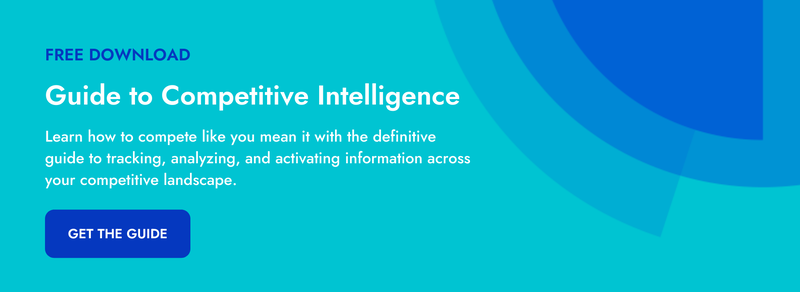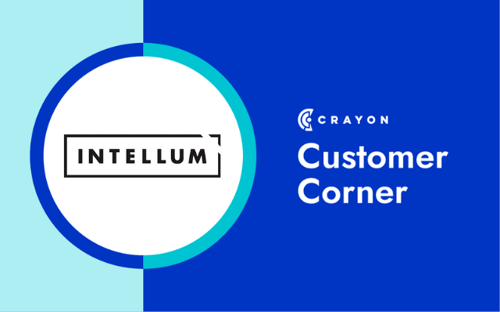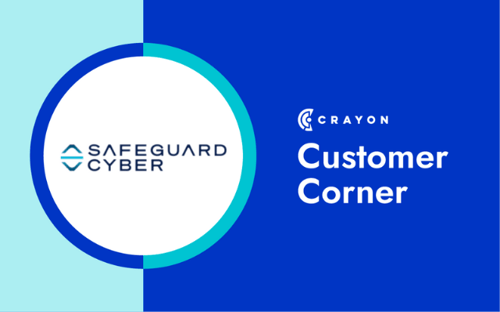 Crayon's Competitive Intelligence Spotlight is an interview series where we chat with intelligence professionals to get a glimpse into their careers and gain unique insight into competitive strategy. In this edition of the Competitive Intelligence Spotlight Series, we shine the light on Alex McDonnell, Senior Product Marketing Manager, Market Intelligence, at InVision.
Crayon's Competitive Intelligence Spotlight is an interview series where we chat with intelligence professionals to get a glimpse into their careers and gain unique insight into competitive strategy. In this edition of the Competitive Intelligence Spotlight Series, we shine the light on Alex McDonnell, Senior Product Marketing Manager, Market Intelligence, at InVision.
ED: What is your role?
AM: I lead Market and Competitive Intelligence out of our Product Marketing team. I’m tasked with producing competitive research and positioning that helps us cut through the noise. I spend the biggest portion of my time enabling Sales and Customer Success, which helps me understand our competitive dynamics at high resolution. From there, I bring that perspective upstream to support product and strategy decisions.
ED: What does the company do?
AM: InVision offers a product design platform that helps product teams build amazing digital experiences. We believe that the companies that are investing in incredible user and customer experiences will win. Since InVision was founded, Design has clearly earned a seat at the table. It’s not about pushing pixels anymore. Now, we’re giving design teams the tools and practices to have the biggest possible impact on business outcomes.
ED: Tell me a little bit about your career path. What was your first job, and what other roles have you had prior to being at InVision?
AM: My first real job was a data entry role for a social media research company. We had these scanners that would pull all kinds of social content about our clients. My job was to manually tag and sort them by things like sentiment and topic. Kind of monotonous, but I learned so much about how to build data models that make sense of customer feedback.
From there, I took a research role at an education software company called D2L. A few months into the role, the CI person left the company, and I took over the function. I was a one-person team, learning by trial-and-error. And I was hooked.
Traditional market research often takes weeks or months to complete, and even longer to see impact. Intel has a much tighter feedback loop and a much different attitude towards uncertainty. Traditional research seems to place a lot of weight on things like sample size and statistical significance, while intel (for me) was simply about delivering useful, compelling perspectives as quickly as possible. Defensible perspectives, for sure, but it doesn’t have to look like a paper in a peer-reviewed journal.
After that, I joined a boutique consultancy called Eigenworks. We were an expert team focused on win/loss analysis for our B2B SaaS clients. I loved the chance to specialize so deeply in the win/loss skill set while gaining broad exposure to different domains within SaaS, such as security, performance monitoring, and sales enablement software.
So, joining InVision has been a return to the client-side, where I’m building out my “v2.0” of an in-house Market Intel function. I gained so much perspective from D2L and Eigenworks that I’m applying here now.
ED: What’s the biggest challenge you’ve faced in the competitive intelligence process?
AM: Earlier in my CI career, I discovered the wrong way to share competitive intel. On a few occasions, I picked up some intel, and quickly blasted it out with a strong, opinionated note about what I thought we should do as a result.
This… did not work well.
I’ve learned that you have to be really deliberate and patient about influencing actions when you don’t have the formal authority to do so. You’re a support function; you don’t control the levers in Sales, Marketing, or Product.
So, if you pick up some intel that you believe should affect, say, how sales qualifies new prospects, then take that directly to the sales leader and have a discussion. From there, maybe hold a small workshop around the hot topic with a few cross-functional players. That will obviously take more time than just email blasting everyone with your hot take, but I bet your recommendations would be even stronger if they were co-signed by the functional leaders who can actually drive the change.
ED: What skills do you think are necessary for someone who works in competitive intelligence?
AM: Curiosity is definitely number one. If you are the kind of person who is always asking the extra question and challenging assumptions, you’d do very well in CI.
If you have that curious spirit, then convert it into a hard skill by developing your interviewing and listening techniques. Things like: What’s the best way to phrase a question to get someone to share key details? Do you need to ask a question at all?
My favorite resource on the topic is Never Split the Difference by Chris Voss. It’s actually about negotiation, but it has helped me so much with win/loss interviews, sales situations, and internal workshop facilitation.
ED: How do you ensure that your stakeholders always have the best intel delivered to them?
AM: So, I have a different POV here than some others in CI. I often see intel people creating different versions of their readouts for different audiences (the sales version, product version, executive version).
For me, this actually runs counter to one of my major goals as a CI function: to shape a shared (but always evolving) understanding of the competitive landscape across the organization.
So, I send the same version of my CI readouts to everyone: Sales, Marketing, Product, Execs and so on. I want everyone hearing the same ideas and speaking the same language.
ED: How do you measure competitive intelligence success?
AM: Haven’t cracked the code on this yet, but there are lots of partial signals. I’m not a fan of tracking “activity” metrics, like how many people viewed a competitive resource or how many deals I worked on. I try to attach my effort directly to top-level business objectives, like reducing churn to competitors. So sure, the CS team probably “owns” that goal, and there are many factors that go into it other than my CI piece, but that’s the sort of goal I want to focus on.
I’m always looking for qualitative signals too, like a great Chorus clip of a rep delivering our positioning to a customer.
ED: What do you think is the biggest misconception about competitive intelligence?
AM: Probably that we can come up with some “silver bullet” that will take a competitor out of the running in a deal. Truth is, if they’re a genuine competitor causing us headaches, then there’s real merit to what they’ve built. There’s no magic spell that we can recite on a customer call to make them go away. And don’t get me started on feature comparison charts. No one has ever been won over by those checkmarks and Xs.
Instead, we need to argue for a more compelling worldview. Describe how competitors are solving the wrong problems. These arguments take practice and nuance, but that’s the way to win.
ED: What are the biggest changes you’ve seen in the CI industry over the last 5/10 years and where do you see it going?
AM: I’m seeing more CI professionals eager and willing to support Sales and CS directly, which is awesome. I have a sense that there’s kind of an old guard of CI people that only care to work on “strategic” projects, and resent supporting Sales at the deal-level, which they would dismiss as “ad-hoc requests.”
The CI-Sales feedback loop is what got me hooked on this profession in the first place. A rep can message you in the morning about a customer who’s considering a new competitor, so you piece something together for them quickly. By the end of the day, you have a signal on how well it worked. The next day, that rep is on another call where the customer was venting about the shortcomings of a different competitor, so you follow that tip. The flywheel keeps spinning!
ED: When you’re not hard at work, what’s your favorite thing to do?
AM: Cooking! I love trying new recipes and hosting dinners. The latest recipe to join the rotation is a green curry broccoli soup with crispy chickpeas. Easy to make with pantry staples, and it’s vegan + gluten free so everyone’s dietary needs are easily met.
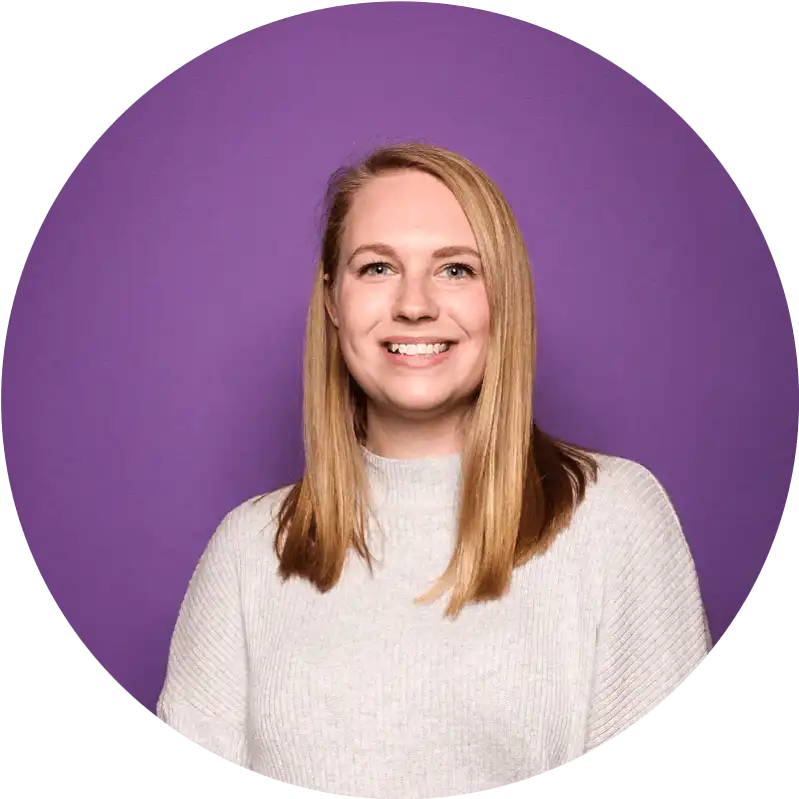
Related Blog Posts
Popular Posts
-
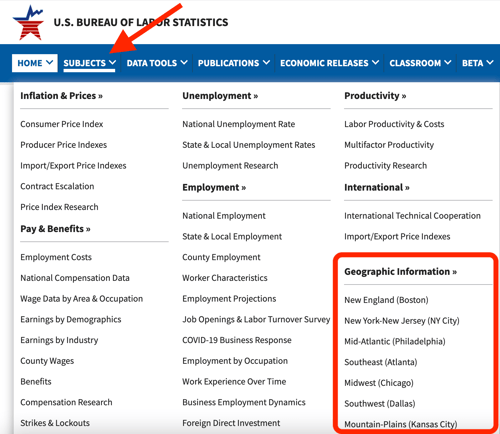 The 8 Free Market Research Tools and Resources You Need to Know
The 8 Free Market Research Tools and Resources You Need to Know
-
 How to Measure Product Launch Success: 12 KPIs You Should Be Tracking
How to Measure Product Launch Success: 12 KPIs You Should Be Tracking
-
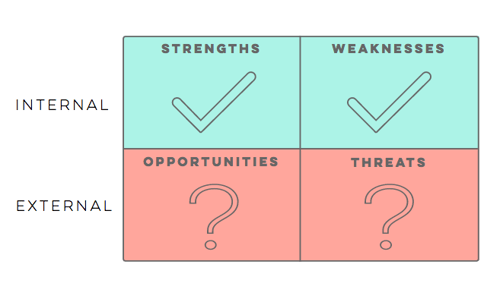 24 Questions to Consider for Your Next SWOT Analysis
24 Questions to Consider for Your Next SWOT Analysis
-
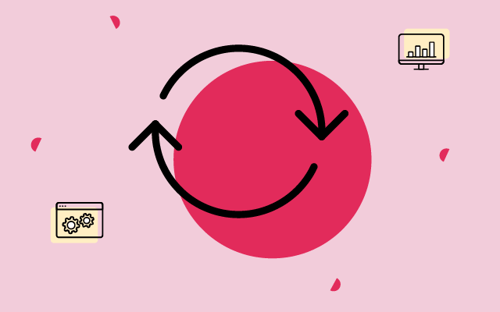 How to Create a Competitive Matrix (Step-by-Step Guide With Examples + Free Templates)
How to Create a Competitive Matrix (Step-by-Step Guide With Examples + Free Templates)
-
 6 Competitive Advantage Examples From the Real World
6 Competitive Advantage Examples From the Real World
